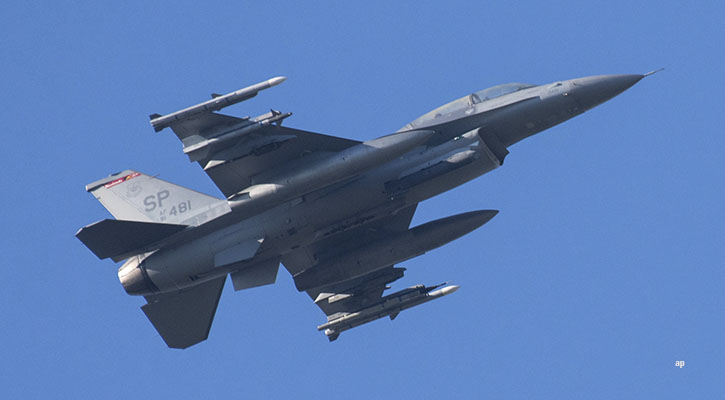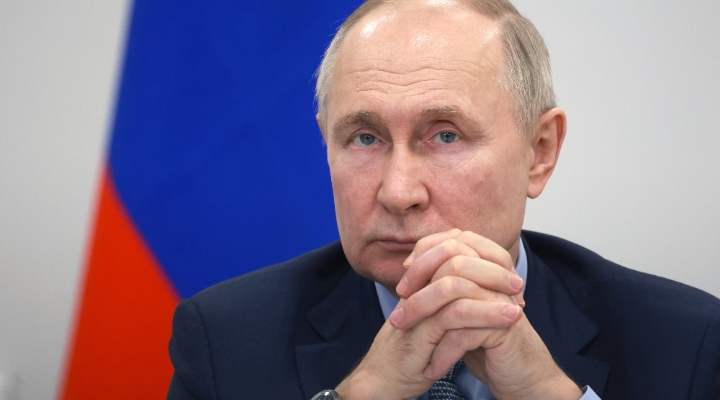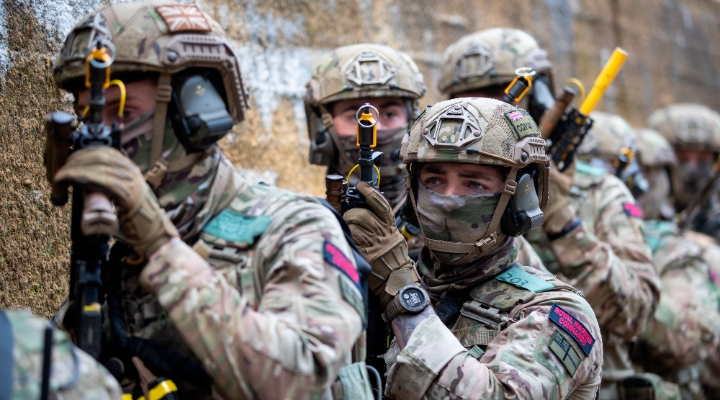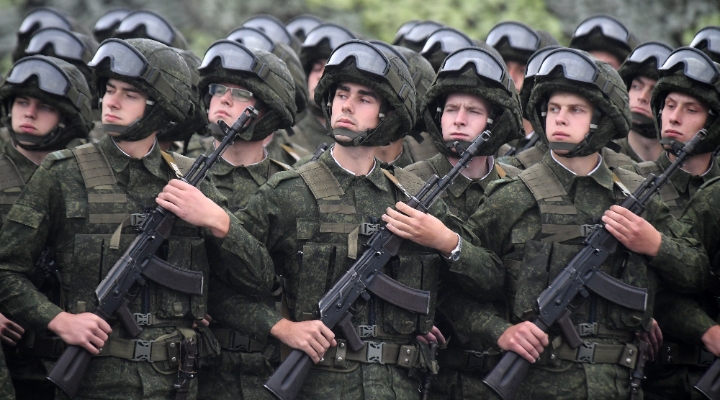
Russian companies and individuals were subject to almost-immediate sanctions following the invasion of Ukraine on 24 February last year. Those sanction regimes were accompanied by the exclusion of Russia from capital markets and the "Swift" payment system – effectively stranding the country financially.
As the anniversary of the invasion comes closer, we're looking at what has changed. In this piece, we examine the City of London specifically, and how it's expunged Russian influence. A separate article on London's high-end property market can be found here.
We started closely monitoring the official UK government’s sanctions list a year ago. As the days and weeks went by, the list grew bigger, taking in companies and individuals associated with the Putin regime and wider Russian business interests.
Some big fish were caught up in the widening net. Chelsea Football Club owner Roman Abramovich and former Arsenal FC shareholder Alisher Usmanov were among them, but they were joined by individuals from across the former Soviet empire, including Azerbaijan, Belarus and Uzbekistan.
Hundreds of Russian companies are on the "asset freeze" list and many can be found on similar EU and US lists. Most are below the radar for UK investors, although they may have heard of Sberbank and VTB Bank, which were listed on the LSE as Global Depository Receipts (GDR) and American Depository Receipts (ADR).
These structures allow foreign investors to buy overseas companies that are listed on their home exchanges. Finance is by its nature global, but Western markets have pulled the plug on Russian companies listing and raising money overseas.
More pertinent to individual and index investors were FTSE 100 companies Evraz (EVR) and Polymetal (POLY), and FTSE 250 firm Petropavlosk (POG). Two out of three of these shares were suspended and all suffered heavy losses in the weeks after the invasion. Evraz, where Abramovich was a shareholder, ended up on the sanctions list in May.
Polymetal Fights On
Shares in Polymetal – registered in Jersey, listed in Moscow and London – have continued trading on the LSE. Before the invasion, shares were trading around £15 per share, but fell below £1 in early March 2022. A brave investor who bought the shares at this point will have more than doubled their money.
The company is now considering moving its domicile from Jersey to Kazakhstan by the end of this year, splitting its gold and silver mining assets between Russia and the central Asian country. Polymetal has no links to the Putin regime and is not on the UK sanctions list.
The UK sanctions list is pretty comprehensive now. It has tried to capture not only direct links to the Russian regime as well as indirect links via the former Soviet Union. It’s a binary list though: if you or a company you invest in is on it, then the City of London is an impenetrable fortress.
Central Asia: The Safe Space?
The UK’s Alternative Investment Market (AIM) has long been dominated by mining stocks, many of which operate in eastern European and central Asian countries.
Central Asia Metals (CAML), which extracts copper in Kazakhstan is one, as is East Star Resources (EST), which explores for copper and gold, also in Kazakhstan.
Looking at the share prices of both companies, the Ukraine invasion and financial fallout has had little impact. Both stocks are up on the year – East Star Resources up 13% and Central Asia Metals around 9% – as the re-opening of China increases demand for raw materials. Risk appetite has also returned to global markets too, boosting natural resources stocks.
Companies in central Asia without direct Russian assets can largely straddle both sides of the line, maintaining non-hostile relations with Russia and still able to access the capital markets of the West. Countries like Uzbekistan are seeing a boom in venture capital activity as international investors shift their focus away from Russia.
A Western observer may assume that, given their historical links, central Asian countries may be more favourable to the Kremlin. Indeed, Kazakhstan has been a Moscow ally, with Russian troops stepping in to quell social unrest in January 2022. Still, the Almaty regime is now refusing to acknowledge Russian-occupied territory in Ukraine. Allegiances are shifting all the time as the war grinds on.
It’s important not to generalise about the probity of countries in this vast region too: the Basel Institute on Governance ranks Tajikistan and Kyrgyzstan as high risk for money laundering.
Loopholes and Leverage
Given the complexity and multinational nature of the sanctions regimes, it would be naïve to assume there are no gaps or loopholes that allow sanctioned individuals or companies to maintain access to UK capital markets.
Company structures are deliberately complex. The spider web of indirectly-owned subsidiaries makes understanding networks of asset ownership a nightmare for compliance officers and lawyers. Determining who is the real "beneficial owner" is the key.
Even a glance at the UK sanctions list spreadsheets shows a number of individuals with different spellings of their names, aliases and monikers, and that is complicated by the translation of Cyrillic name conventions to Roman script. The same goes for company names: IS Bank is simultaneously known as Industrial Savings Bank, "Industrialny Sberegatelny Bank" and JSC CB IS Bank.
At a financial crime conference in London in early February, I asked a panel of industry experts whether the sanctions regime is completely watertight to what they call "circumventions": efforts to get around the existing roadblocks.
No compliance system can be 100% effective against these attempts, the heads of financial crime for leading asset managers said. The aim is to make life as difficult as possible for the perpetrators. The UK regulatory regime is tough for criminals to go undetected: even legitimate money transfers can trigger a Suspicion Activity Report (SAR) and lead to the National Crime Agency poring over bank accounts.
Brokers, who take buy and sell orders for securities like shares, are central to this fight against sanctions-dodging, another executive said. Sanctioned individuals can in theory still trade shares via intermediaries but financial middlemen are now doing more due diligence to discover who is ultimately behind trades.
Data technology companies can also monitor sanctions-busting on a real-time basis, tracking potential red flags: these include sudden changes in ownership and new companies being formed in third countries (such as Turkey). As 50% is considered the threshold for "owning" a company under sanctions law, a lot of activity occurs around this level – one workaround is to have two companies, both connected, buying a 30% each stake. A decent screening system will pick this activity up.
Dividend Pain
At the event, an executive at a data company said dividend payments have been an active area of interest for those attempting workarounds. For example, a sanctioned Russian individual with minority interests in a non-sanctioned company suddenly saw this lucrative cash pipeline blocked off last year.
Many income payments involve significant sums of money and are used to maintain the lifestyles of ultra high-net worth individuals. Bank accounts are frozen, but there are loopholes for those trying to get access to their money via indirect routes. Still, the difficulties in transferring money to and from Russia for even legitimate reasons are a deterrent for all but the most determined.
A year on, the sanctions regime, like the war itself, looks set to continue in its current form for the forseeable future. Those looking to float Russian companies or raise money in London may have a long wait on their hands. While the era of unscrutinised oligarchs accessing the City of London's liquid markets may be over, it would be hard to say a Russian company will never list in London again.
Russian executives based in London may be hoping the military conflict gets resolved somehow. And regulators may be moving on to their next battle if tensions between China and Taiwan escalate. A whole new sanctions frontier may be on the horizon.




























